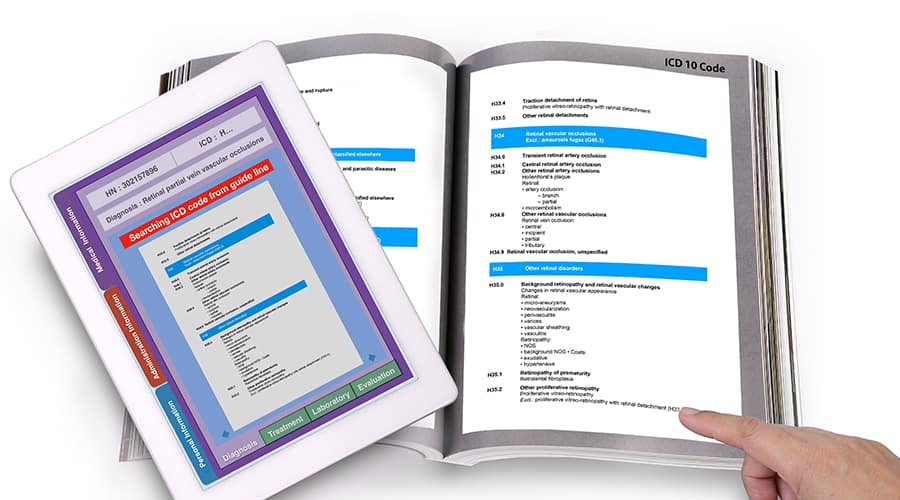
Recent CDT changes to be reversed
On January 1, 2020 CMS implemented a change to coding that prevented PTs and OTs from billing evaluation codes and therapeutic activity and/or group therapy codes delivered on the same day. At this time the American Physical Therapy Association and members put forth a quick effort to promote CMS to change this decision. On January 24, 2020 CMS announced that it would remove what has been some of the most argued against changes to, for the most part, return to the coding rules used in 2019.
There are still issues that are not announced or worked out yet, however this means that physical and occupational therapists will be able to return to billing for therapeutic activities (97530) delivered on the same day to the same patient as PT or occupational therapy evaluations billed under codes (97161, 97162, 97163, 97165, 97166, 97167). PTs (and occupational therapists) will also be allowed to return to billing the group therapy code (97150) with those evaluation codes.
While this is good news for many therapists and companies, there are still many details to be worked out, including the timeline for CMS to notify Medicare Administrative Contractors of the change, and whether it’s retroactive. Additionally, a few of the January 1 restrictions are staying in place, primarily related requirements around use of the 59 modifier/X modifier.
From the American Physical Therapy Association Website: “The coding edit CMS imposed on January 1 not only ran counter to best practice in physical and occupational therapy, but was not consistent with CMS’ own stated goals for care,” said Kara Gainer, APTA’s director of government affairs. “APTA and its members conveyed that message in large numbers, and in no uncertain terms. We’re extremely pleased that CMS listened to the case we made and did the right thing for patients.”
While the reversal eliminated the most problematic parts of the January 1 edits, a few restrictions still remain: CMS will continue to require the 59 modifier/X modifier to be applied if a PT wants to receive payment for furnishing both manual therapy (97140) and an evaluation using any of the physical therapy evaluation codes (97161, 97162, 97163) on the same day for the same patient, or if billing for therapeutic activities (97530) or group therapy (97150) delivered on the same day as a physical therapy reevaluation (97164).
The letter from Capitol Bridge also states that CMS will provide further information when it becomes available regarding impacted claims. Other details, such as how and when Medicare Administrative Contractors will be notified of the change, are unclear as of publication of this article. APTA will provide details as they become available.”
The APTA posted “After a concerted effort by APTA, its members, and other stakeholders, CMS relented on the most detrimental parts of its changes to the edits that prohibited payment for certain activity codes if they’re used on the same day as evaluation codes. The win means that PTs will be able to, for the most part, return to coding practices that were in effect prior to January 1, 2020. CMS has not yet shared details on effective date and the process for implementation of the changes.
CMS has not yet shared details on effective date and the process for implementation of the changes.
In a January 24 letter to APTA and other associations, Cathy Cook, MD, medical director of CMS coding contractor Capitol Bridge, wrote that “after reviewing this issue more closely, CMS has made the decision to retain the edits that were in effect prior to January 1, 2020.”
The return to the pre-January 1 coding environment reverses a CMS National Correct Coding Initiative edit that prevented PTs and OTs from billing for therapeutic activities (97530) if any of the PT or OT evaluation codes were billed the same day for the same patient. That prohibition crossed disciplines that use the same provider number, which prevented, for instance, an OT for billing for therapeutic activities with a particular patient on the same day a PT in the same practice billed for evaluation of the patient. In addition, CMS applied restrictions on billing for group therapy on the same day as PT or OT evaluations.
Katy Neas, APTA’s executive vice president of public affairs, says that even with the remaining restrictions, the reversal from CMS is a significant one.
“It’s never easy to undo something that’s been imposed by CMS and is already up and running,” Neas said. “The fact that CMS changed course so quickly on so many of the most damaging parts of the coding edits is a testament to what can happen when APTA, its members, and stakeholders speak with a unified voice.”
Questions about where things stand in the wake of the CMS change? Contact advocacy@apta.org.”
Clinicians and companies will need to keep a close eye on announcements and changes for a while to avoid making costly mistakes. I suspect that many will find themselves having to appeal incorrect claim denials in the upcoming months due to confusion created when rules changes occur.
I am hoping that clinicians see this as motivation to work towards encouraging change to the upcoming reduction of payments coming in the next two years for therapy services. Final Rule 2020 announced 8% cuts to therapy services, and 15% reduction in payment for assistant delivered treatments.
As anticipated, other insurances are announcing they will follow Medicare’s lead. This past week healthcare giant Humana announced that it’s falling in line with rules from the Centers for Medicare and Medicaid Services designed to establish an 85% payment differential for therapy services delivered “in whole or in part” by a PTA or occupational therapy assistant. Consistent with CMS, Humana is requiring use of code modifiers in 2020, with no changes to payment until 2022.
This new system, which establishes a code modifier (“CQ” for PTAs and “CO” for OTAs) began on January 1 for Medicare Part B payments. The new approach was triggered by federal law that mandated the creation of a way to denote the volume of physical therapy and occupational therapy services delivered by PTAs or OTAs, and then create a payment differential for those services. As per Humana’s announcement “as applicable in the Federal Register and relevant CMS guidance.” Like CMS, Humana also is requiring the modifier on all applicable claims submitted for services delivered beginning January 1, 2020.
CMS and Humana have stated that they intend to reimburse at 85% of the physician fee schedule for services delivered “in whole or part” by a PTA or OTA beginning in 2022.






